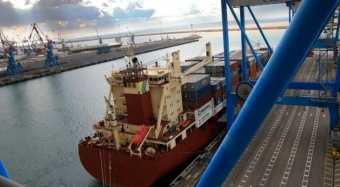The Israeli Customs Directorate is about to move into the second phase of the next generation computerized system, simplify the administrative burden of international movement of goods.
The new "Global Gate" (Sha’ar Olami) System, one of the biggest and most advanced software projects in Israel, will implement state-of-the-art technologies, concepts and interfaces between members of the trade community as well as new internal procedures and policies, improving and accelerating the current customs procedures along with balancing between trade facilitation and law enforcement.
The project will allow the rapid integration of Israel Customs into the international trend of simplifying foreign trade procedures according to standards set forth in international conventions and agreements such as the Kyoto Convention and the World Trade Organization
The system will set the pace for automation in other government departments leading to true e-government in foreign trade.
Israeli Customs Directorate launched the first stage of new state-of-the-art computer system during late 2013. The first stage covered electronic transmission of master bills of lading and house bills of lading. This declaration, called CRI (Cargo Report Import), is compliant with the World Customs Organization SAFE framework of standards.
Due to the complexity of the new system and the need to train customs employees as well as customs brokers it was decided to launch it in four separate stages.
- The first stage covers cargo manifests – already in operation,
- The second. basic imports, will begin as follow: on May 3rd compulsory pilot and in July 2015 full production of the system. ( final date not yet fixed !)
- The third, advanced import and
- The forth, export.
It is important to note that the cargo manifest system is an operational system and that full participation of the forwarders in the air cargo sector is crucial.(there are still many forwarders that are not complying with the guidelines).
Since the customs need to move further and fully implement the system, customs will delay the release of the freight for forwarders that are not cooperating, or alternatively, to order the airlines companies not to load shipments for which data was not transferred to them.
Importers will have to be equipped with SMART CARD a signature device used to produce a certified electronic signature. A signature device is unique to its owner, kept confidential by its owner, and is also known as a “private key” in the public key encryption system. The issuance of a smart card is subject to certain procedures relating to issuing electronic certificates that comply with provisions of the Electronic Signature Law and its regulations.
Once importers are equipped with a SMART CARD they will be able to prepare a digital power of attorney to their customs clearing agents.
A power of attorney is a legal instrument authorizing an entity or person to act as the attorney or agent of the grantor. Under customs rules customs brokers are required to have a valid power of attorney in order that they may transact Israeli Customs.
Business as required by law or regulation. The digital format of the power of attorney can be traced on Tehila (Infrastructure for the Internet Age) web sight, is the main system of the Government of Israel and the dissemination of government information in the Internet and the central body ensures secure browsing services to government ministries and its institutions.
Importers should note that without a digital power of attorney customs clearance cannot be affected. The SMART CARD is an integral and essential part of the new customs computerized system. It will enable importers to send scanned documents such as commercial invoices, certificates of origin, etc. direct to the customs computerized system.
As noted above, the new Customs Automated System is an integrated customs management system for international trade and transport operations which will affect all those companies involved in foreign trade.
The highly advanced software applications in which the customs clearing community is presently involved are designed and developed for customs administrations and the trade community to comply with international standards when fulfilling import, export and transit related procedures. Through its newly developed program, Israeli customs directorate aims at:
- Modernizing customs operations and helping to improve revenue collection
- Facilitating trade efficiency and competitiveness by substantially reducing transaction time and costs
- Improving security by streamlining procedures of cargo control, transit of goods and clearance of goods
- Helping fight corruption by enhancing the transparency of transactions
- Promoting sustainable development by cutting down on the use of paper, through the use of electronic transactions and documents
Because of its complexity, the development process for software which is carried out by the various software companies serving the trade, is enormous, time consuming as well as investing a great deal of finance.
The significant changes in software which we expect to take place at the end of the year can create unexpected and very significant problems elsewhere in the software program.
The software development process involving the freight forwarding as well as customs clearing sectors should therefore be sufficiently well planned, controlled, and documented to detect and correct unexpected results from software changes.






